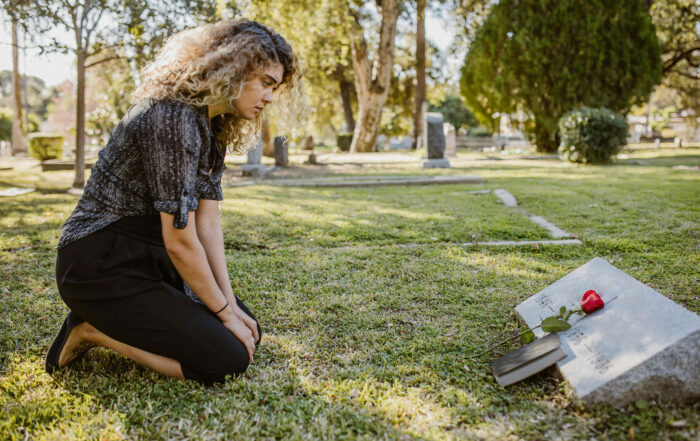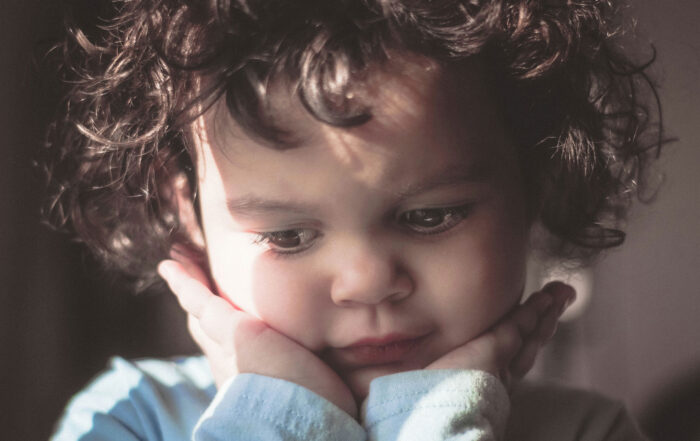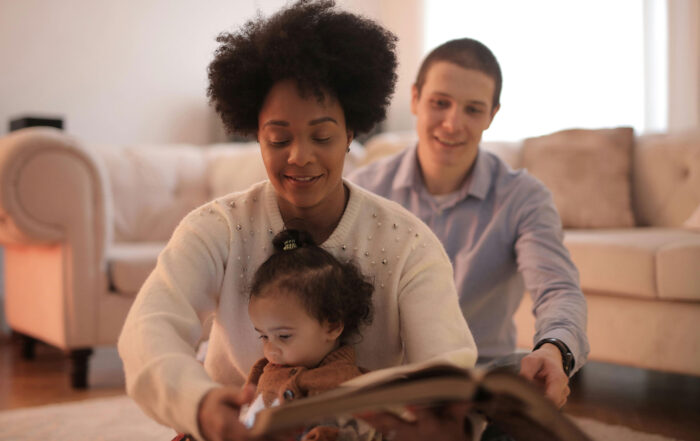
To identify core components of parent/caregiver integration into evidence based child trauma treatment models, specifically those parents/caregivers who have experienced trauma themselves. The Parent/Caregiver Trauma and Healing Coordinating Group (PCTHCG) of the National Child Traumatic Stress Network examined existing scholarly literature, gathered input from clinical experts and parent partners, and assessed child trauma treatments. Eleven core components were identified through pooled sources of the available literature, clinical and parent/caregiver partner expertise, and information from existing evidence-based child trauma treatment models. Core components identified: engagement of parent/caregiver, assessment, parenting, coregulation, attachment, relationship repair, support of parent/caregiver, emotional coaching, addressing parent/caregiver trauma history and symptoms, and parent/caregiver appraisal and meaning making. To further validate these core components, the PCTHCG invited child trauma treatment model developers (N = 11) to indicate the presence of these components in their models and describe how their models attend to parent/caregiver trauma.
Subsequently, a Core Components of Trauma Informed Child Treatment Models Related to Parent/Caregiver Trauma Grid (Core Components Grid) was developed. Despite general consensus that it is beneficial, few studies thoroughly explore the impact of parent/caregiver inclusion, specifically those who have experienced trauma, in their child’s trauma treatment. There is a significant need for future studies on the impact and mechanisms of parent/caregiver trauma and the integration into child trauma treatment. The Core Components Grid is intended to move the field forward toward a more structured examination of parent/caregivers who have experienced trauma and their inclusion in their child’s trauma treatment. (PsycInfo Database Record (c) 2020 APA, all rights reserved)
Share This Post!
Expert Consensus Regarding Indicators of a Traumatic Reaction in Autistic Youth: A Delphi Survey
By Connor M Kerns, Diana L Robins, Paul T Shattuck, Craig J Newschaffer, & Steven J Berkowitz It has been suggested that the sequelae of trauma are under-recognized in youth on the autism spectrum. [...]
Helping Children and Adolescents Cope with Traumatic Events
By Southern California Sunrise Recovery Center Children and adolescents are exposed to a number of different traumatic events that can spark a lot of emotions and physical reactions. The effects of [...]
Trauma screening may help connect children to specific mental health services
By Penn State Each year between 200,000 and 270,000 children and youth enter foster care placements with child welfare services, and many more children receive child welfare services while remaining in [...]
The Mental Health of Minority and Marginalized Young People: An Opportunity for Action
By Vivek H. Murthy, Surgeon General Mental health is an essential part of overall health. It not only affects the ability of young people to succeed in school, at work, and [...]
How to Break the Cycle of Childhoold Trauma? Help a Baby’s Parents
By Rhitu Chatterjee, NPR Teresa Cox-Bates was only 11 years old when her father died, an event that dramatically altered her family's circumstances and shaped her childhood experiences. Studies also show that [...]
Supporting Children and Teens During the Holiday Season
Provided by The National Child Traumatic Stress Network This fact sheet provides tips that parents can use to talk to their children and teens about how they are feeling and changes to [...]







